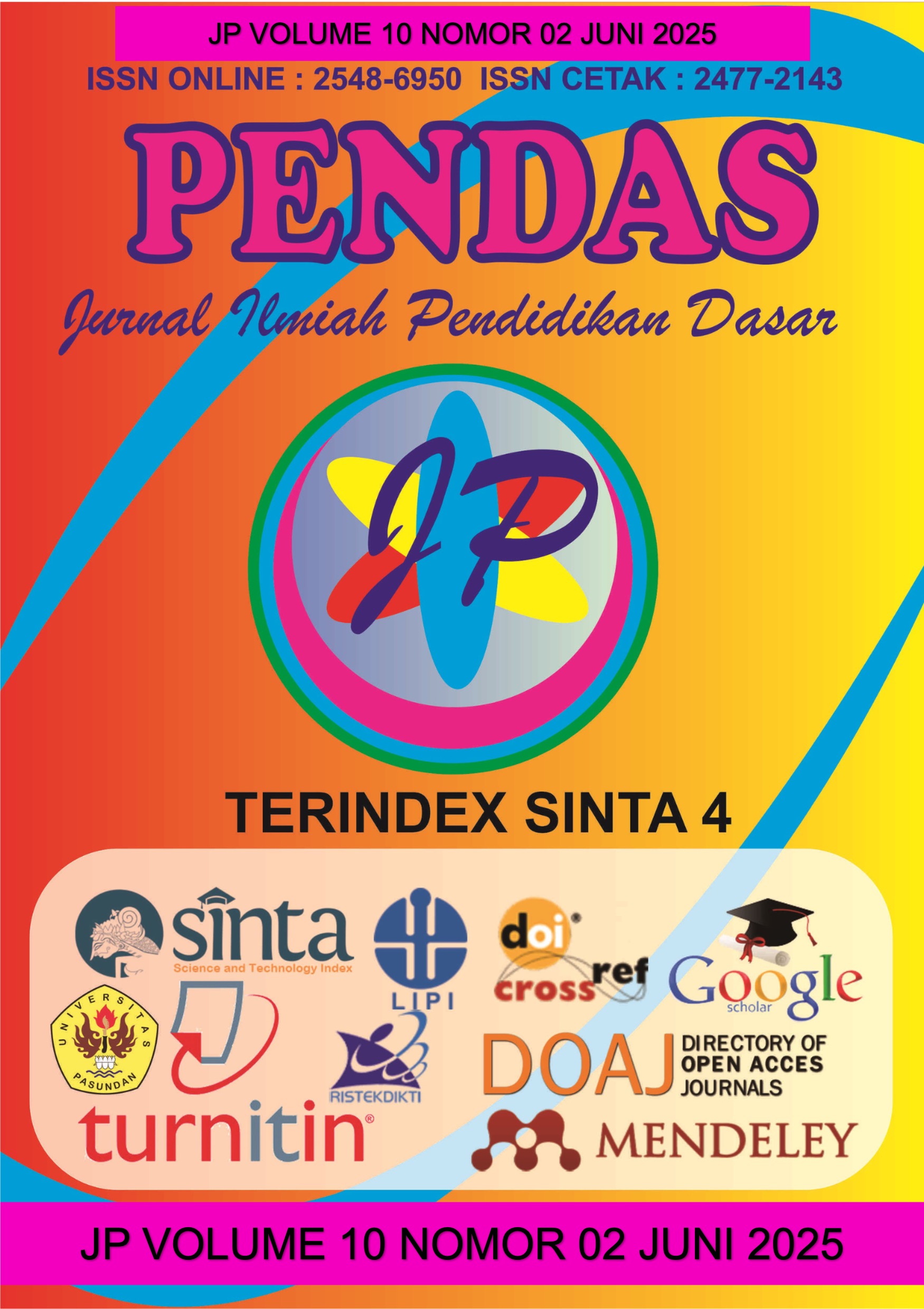TEORI BELAJAR KOGNITIF : STUDI KASUS KINERJA PROJEK SEBAGAI UKURAN DIMENSI PROFIL PELAJAR PANCASILA SISWA SMP NEGERI 3 MUARA KOMAM
DOI:
https://doi.org/10.23969/jp.v10i02.26757Keywords:
Cognitive learning theory, project performance, Pancasila student profile dimensionsAbstract
The application of cognitive learning theory in project performance as a measure of the Pancasila student profile dimension still faces problems. The problem is experienced by students of SMP Negeri 3 Muara Komam. The purpose of the study was to determine the results of project performance as a measure of the Pancasila student profile dimension in project implementation, teachers apply the principles of cognitive learning theory. The research method is qualitative research with respondents teachers, students and principals. Determination of respondents, namely purposive sampling, is based on research objectives. Snowball sampling occurs through the involvement of participants according to respondents. The research procedure begins with researchers compiling instruments and learning devices for integrating cognitive learning principles, implementing research through interview and observation techniques. Data analysis through temporary conclusions and final conclusions that occur during the interview process. The results of the study were obtained from teacher respondents who had prepared, implemented and transmitted project performance by applying the principles of cognitive learning theory, namely meaningful learning. Student respondents have prepared, implemented, and produced the performance of the Pancasila student profile project and principal respondents have facilitated the preparation, implementation and evaluation of the implementation so that students produce project performance as a measure of the Pancasila student profile dimension.Downloads
References
ziz, A. N., Rahmatullah, A. S., Anjasari, T., & Janti, S. A. (2023). Efek Psikologis Pembelajaran Homeschooling dalam PenerapanTeori Sosial Kognitif dan Konstruktivisme. AKSARA: Jurnal Ilmu Pendidikan Nonformal, 09(1), 113–128. https://doi.org/http://dx.doi.org/10.37905/aksara.9.1.113-128.2023
Karudin, A., Ambiyar, A., Rahim, B., Syahri, B., Lapisa, R., & Mahendra, M. L. (2023). Dampak Model Pembelajaran Kolaboratif Think Pair Share Berbasis Proyek Terhadap Peningkatan Hasil Belajar, Kreativitas Dan Kerjasama Mahasiswa Pada Mata Kuliah Mekatronika. Jurnal Vokasi Mekanika, 5(2), 167–177. http://vomek.ppj.unp.ac.id/index.php/vomek/article/view/526
Maritim, E. (2024). Mengembangkan Pembelajaran Bermakna di Sekolah Dasar Melalui Konsep Edupreneurship. Madani: Jurnal Ilmiah Multidisiplin, 2(7), 169–174. https://doi.org/https://doi.org/10.5281/zenodo.12526721
Qomaruddin, H. S. (2024). Kajian Teoritis tentang Teknik Analisis Data dalam Penelitian Kualitatif: Perspektif Spradley, Miles dan Huberman. Journal of Management, Accounting and Administration, 1(2), 77–84. https://doi.org/https://doi.org/10.52620/jomaa.v1i2.93
Rizkasari, E. (2023). Profil pelajar Pancasila sebagai upaya menyiapkan generasi emas Indonesia. Jurnal Ilmiah Pendidikan Dasar, 10(1), 50. https://doi.org/10.30659/pendas.10.1.50-60
Saksono, H., Khoiri, A., Surani, D., & Agnes Remi Rando, Nur Amega Setiawati, Umalihayati, Helmi Ali, Abner Adipradipta, Muhammad Nur Ali, M. A. (2023). Teori Belajar Dalam Pembelajaran (P. T. Cahyono (ed.)). Yayasan
Downloads
Published
Issue
Section
License
Copyright (c) 2025 Pendas : Jurnal Ilmiah Pendidikan Dasar

This work is licensed under a Creative Commons Attribution 4.0 International License.














































